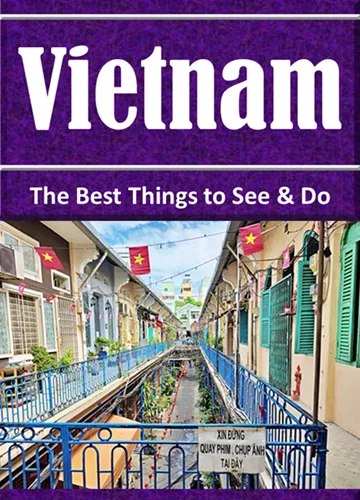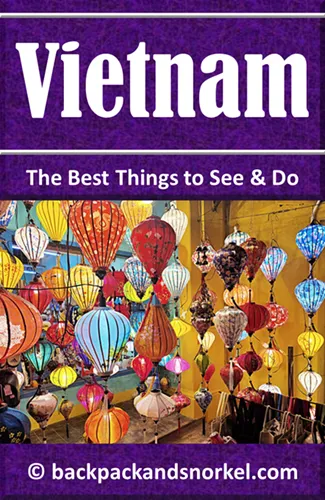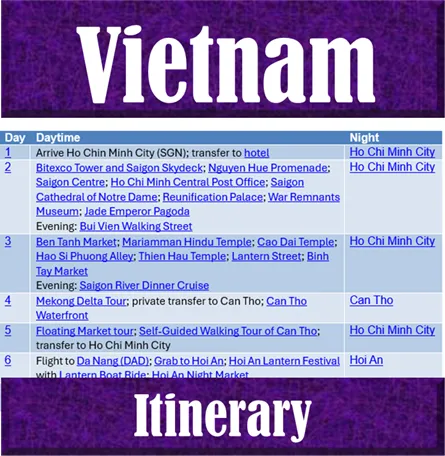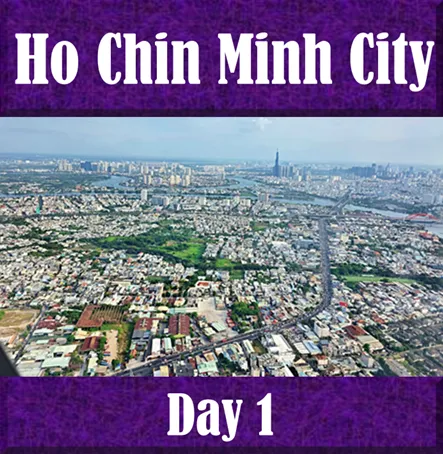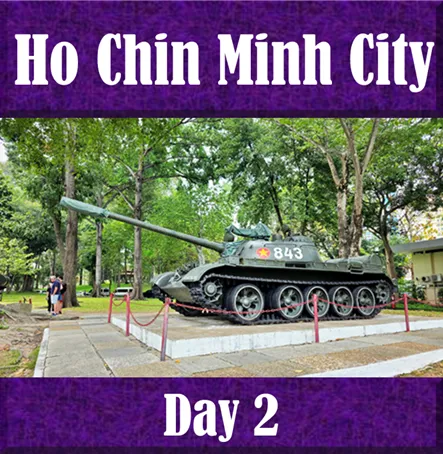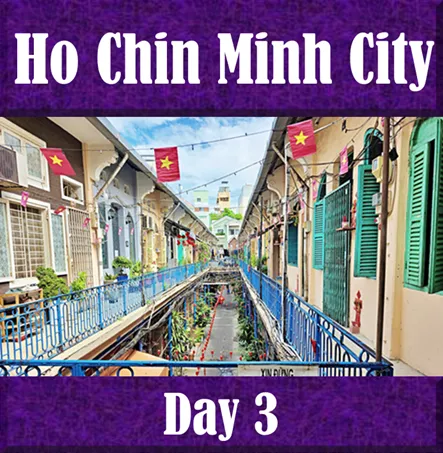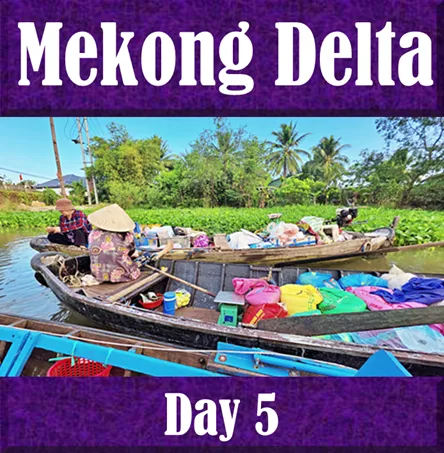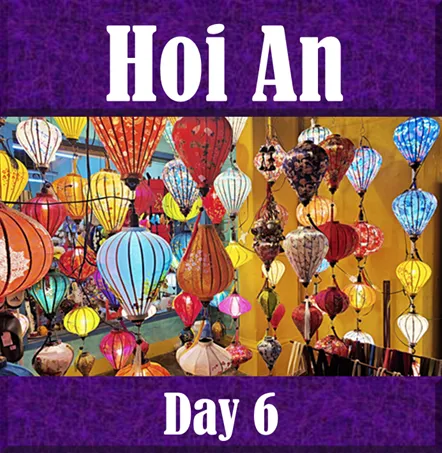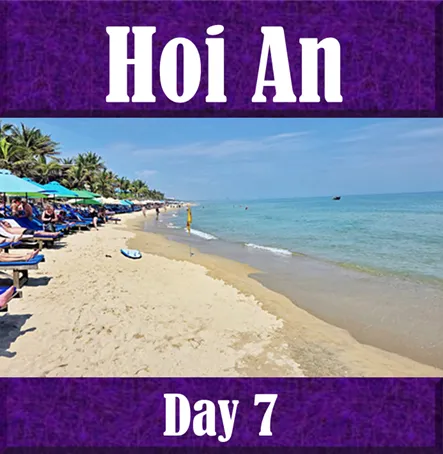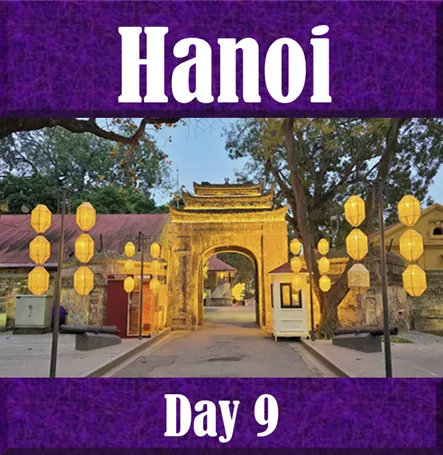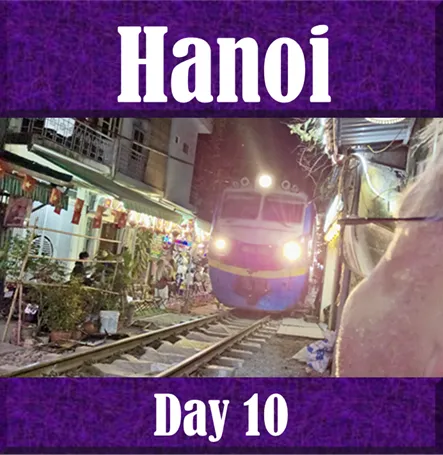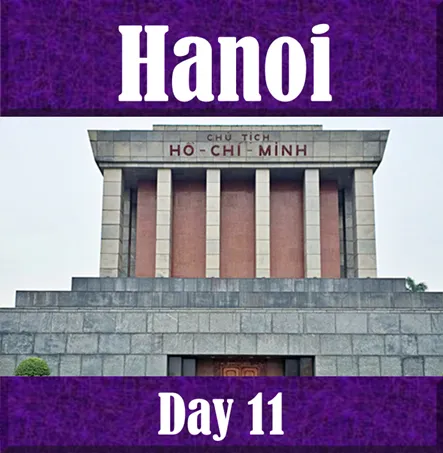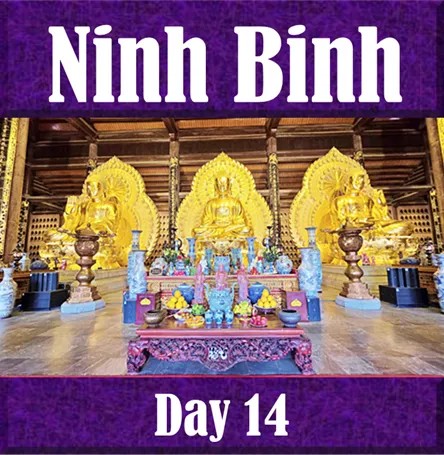Hanoi Train Street: The Ultimate Visitor Guide (Schedule & Safety Tips) | Vietnam Purple Travel Guide
(map_north, map_south, reviews)
This is Premium Content! To access it, please download our
Backpack and Snorkel Purple Travel GuideHanoi Train Street is one of the most exhilarating and visually iconic destinations in Vietnam’s capital — a place where daily life unfolds just inches from the rumbling wheels of a passing train. Located within the heart of Hanoi’s Old Quarter, Train Street refers to the narrow residential alleyways that hug the railroad tracks. Visitors are drawn here not only by the surreal spectacle of a train threading through a living neighborhood but also by the unique charm of this hidden pocket of the city, where locals, tourists, and locomotives converge in a uniquely intimate space.
For me, Train Street South was one of the highlights of our Hanoi trip. It was a bit too intense for my wife.
The History and Origins of Hanoi Train Street
The railway itself dates back to the French colonial period, constructed in the early 20th century. It forms part of the North–South railway line (known as the Reunification Express), which runs over 1,700 kilometers between Hanoi and Ho Chi Minh City. In Hanoi, due to the rapid and organic growth of residential zones, housing began to encroach dangerously close to the tracks, creating what is now known as ‘Train Street’.
Over the decades, what began as a gritty and functional part of the city slowly gained international attention. By the 2010s, social media had catapulted Train Street into a must-visit destination. Tourists were captivated by the narrowness of the space — barely 3 ft (1 m) or so on either side of the tracks — and the thrill of watching the train barrel past while sipping coffee or snapping photos just feet away.
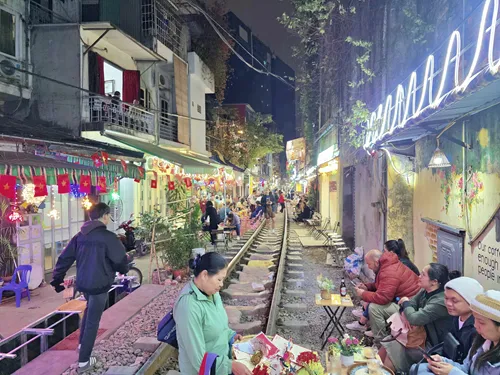
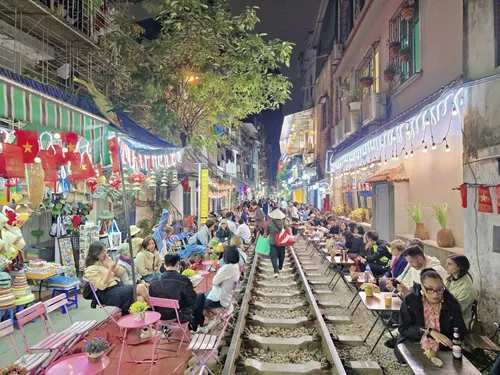
How Many Hanoi Train Streets are There?
Though most visitors refer to ‘Hanoi Train Street’ as a single location, there are actually two main stretches of residential railway track in Hanoi where the phenomenon can be observed.
To distinguish them better, we will refer to them as Train Streep North (map_north), and Train Street South (map_south). Both locations are part of the same North–South railway line, and trains pass through them regularly.
This is Premium Content! To access it, please download our
Backpack and Snorkel Purple Travel GuideThis is Premium Content! To access it, please download our
Backpack and Snorkel Purple Travel GuideTrain Streep North (map_north)
This is Premium Content! To access it, please download our
Backpack and Snorkel Purple Travel GuideThe most popular and photogenic section runs between Phùng Hưng Street and Trần Phú Street, just southwest of Hoàn Kiếm Lake. This is the area filled with small cafés and the iconic narrow alley where the train brushes past buildings within inches.
Be advised that this area is typically overrun with tourists, leading to aggressive and sometimes rude restaurant owners who force you to buy expensive drinks or food if you want to see the trains.
Due to safety concerns, Hanoi Train Street North has faced periodic closures. In 2019 and again in 2022, authorities attempted to restrict tourist access, citing overcrowding and dangerous behavior. Entry to this stretch of Train Street was officially banned unless you were a resident or entering a café with local authorization. However, many café owners now work with authorities to allow controlled access to their premises.
These police barricades have actually supported price gauging, because now you need to go to a restaurant to experience Train Street North, and if you do not spend enough, some owners will ask you to leave.
Train Streep South (map_south)
This is Premium Content! To access it, please download our
Backpack and Snorkel Purple Travel GuideThe second, lesser-known section is located by Hanoi 1990s restaurant, closer to Hanoi Station. While this area is less commercialized and has fewer cafés, it offers a similar experience with fewer crowds and a more ‘local’ atmosphere.
The vendors here are very nice – they ask you to buy a drink or some food, but we have seen people sit on restaurant chairs and not consuming anything. As typical for Vietnam, the locals in this area are very nice and friendly.
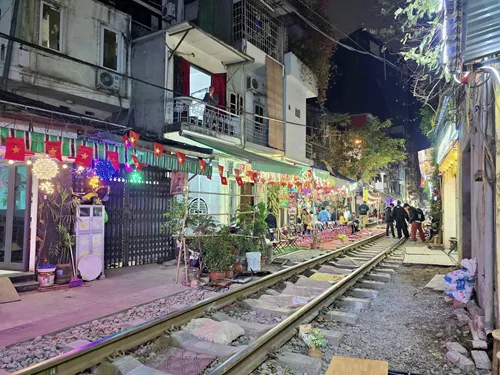
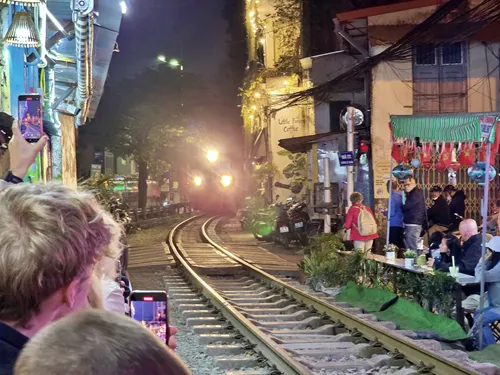
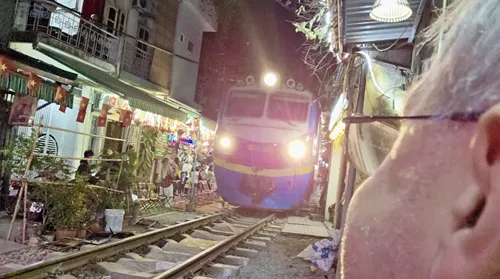
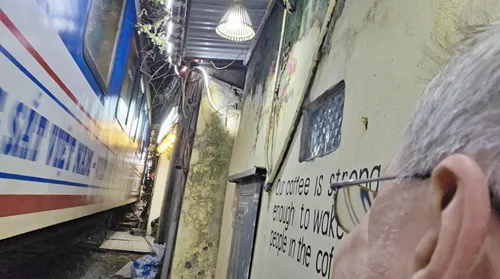
Watch the Train Pass by
The primary draw of Train Street is, of course, watching a train pass through an alley that looks far too narrow for it. Onlookers gather on both sides of the track, cameras at the ready. Just minutes before arrival, locals will begin alerting visitors to move back, retract tables and chairs, orient their knees in the direction of the moving train, and press themselves against the walls of buildings. When the massive train drives past, sometimes mere inches from bystanders, it creates a surreal and unforgettable experience.
It looks scary, but I felt perfectly safe.
Train Schedule (Subject to Change)
Train schedules can vary, and sometimes trains are delayed or canceled without much notice. Schedules seem to change by the season, and you can always ask the locals, or look for a sign which states the current schedules.
At the time we were there, train schedules were: 11:30am, 3:30pm, 7:12pm, 7:20pm, 7:45pm, 8:55pm, 9:50pm.
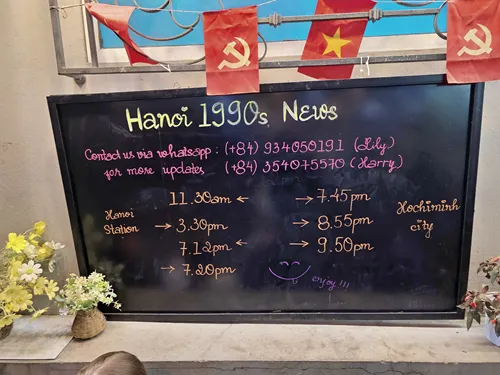
Admission Fee and Opening Hours
Admission Fee
There is no official admission fee to visit Hanoi Train Street. However, because access to Train Street North is now partially restricted, visitors are typically asked to enter through a café or restaurant. In exchange, you are expected to buy a drink (prices range from 40,000 to 70,000 VND or about $1.50–$3 USD), which is a small price to pay for a front-row seat to one of Hanoi’s most dramatic spectacles.
Train Street South can either be entered through the restaurants or the main street.Opening Hours
Train Street does not have fixed opening hours since it is a functioning residential area. Most cafés open from around 8:00 AM until 10:00 PM, depending on the day. However, for the most dynamic experience, aim to arrive at least 30 minutes before a scheduled train time to secure a good spot and soak in the atmosphere.
Here at Backpack and Snorkel Travel Guides, we promote self-guided walking tours.
But we realize that not everybody likes to walk by themselves in a foreign city. So, just in case that you rather go with ab guide: NO PROBLEM! Please see the GuruWalk and Viator tours below.
free GuruWalk tours
paid Viator tours
Where do you want to go now?
Author: Rudy at Backpack and Snorkel
Bio: Owner of Backpack and Snorkel Travel Guides. We create in-depth guides to help you plan unforgettable vacations around the world.
Other popular Purple Travel Guides you may be interested in:
Like this Backpack and Snorkel Purple Travel Guide? Pin these for later:

